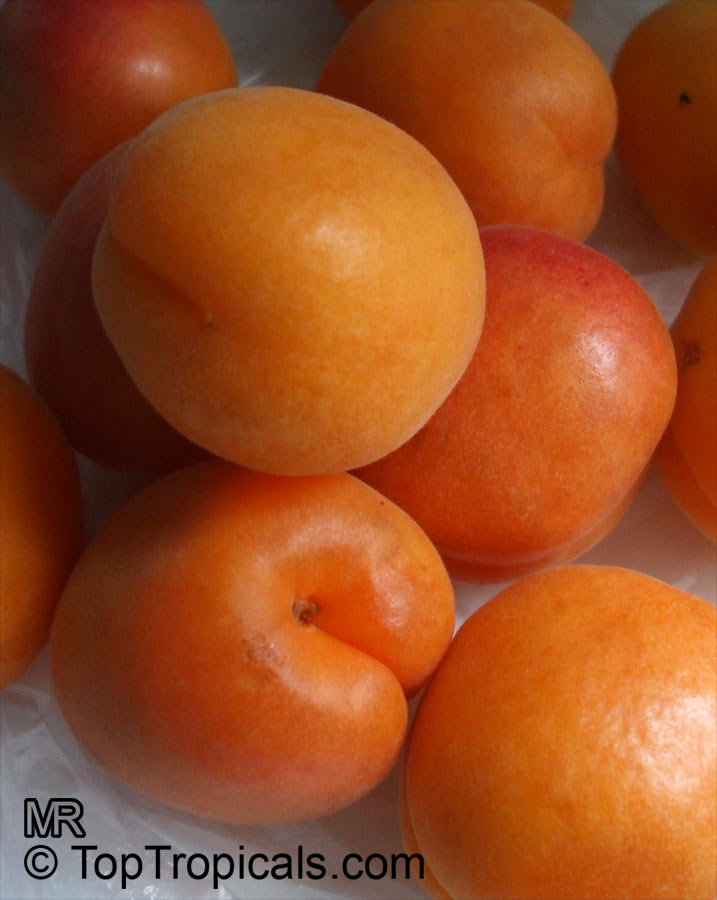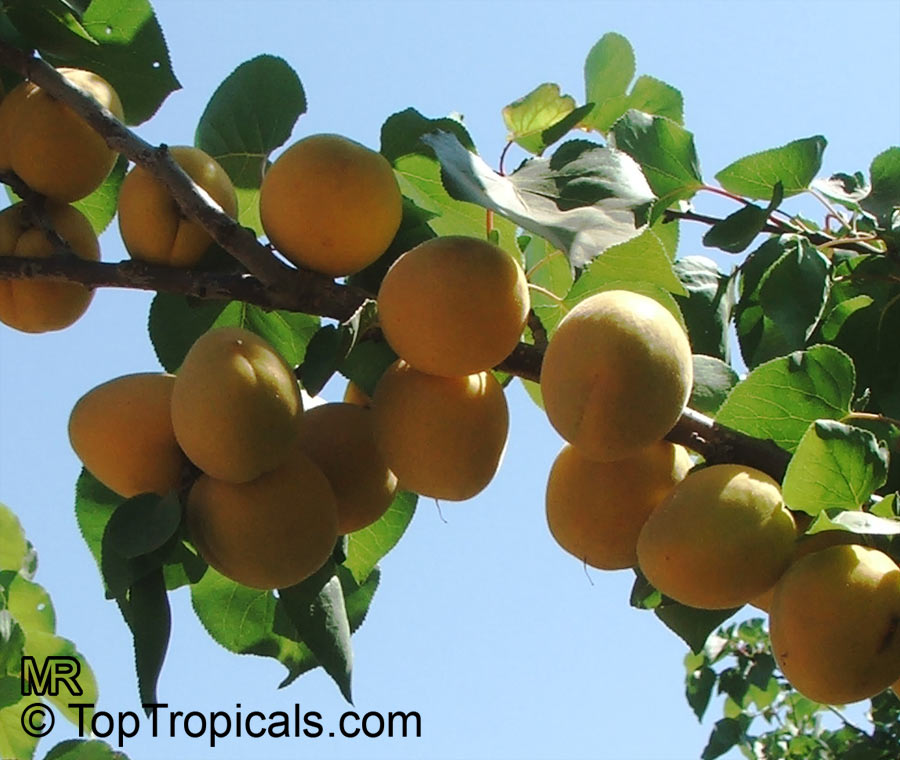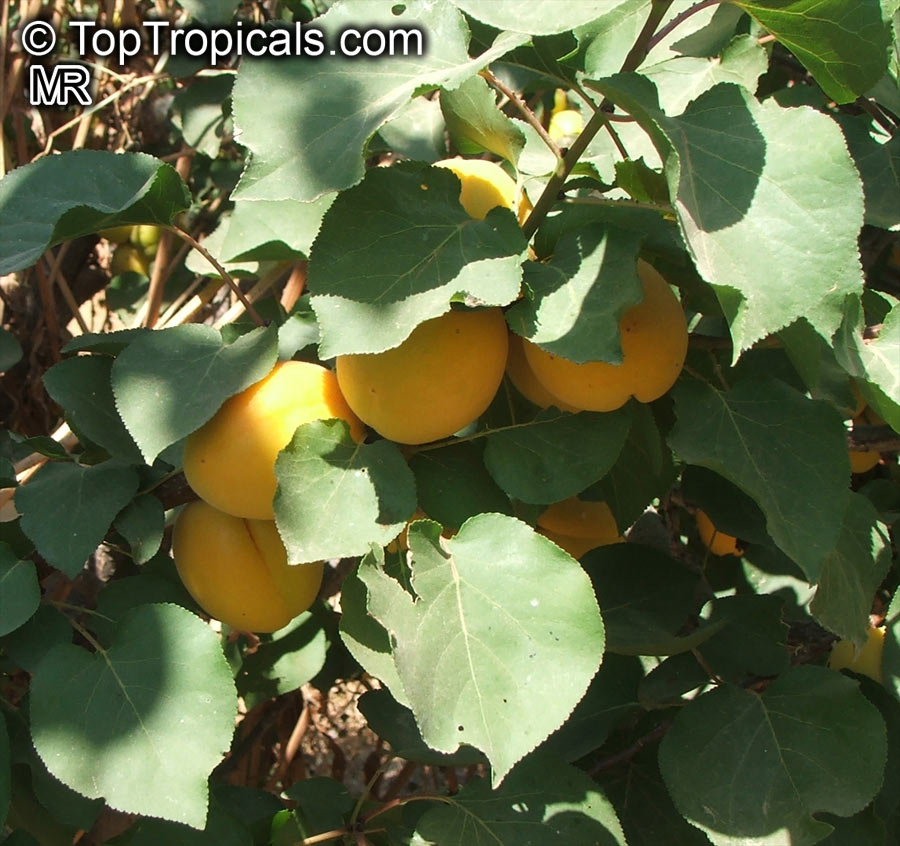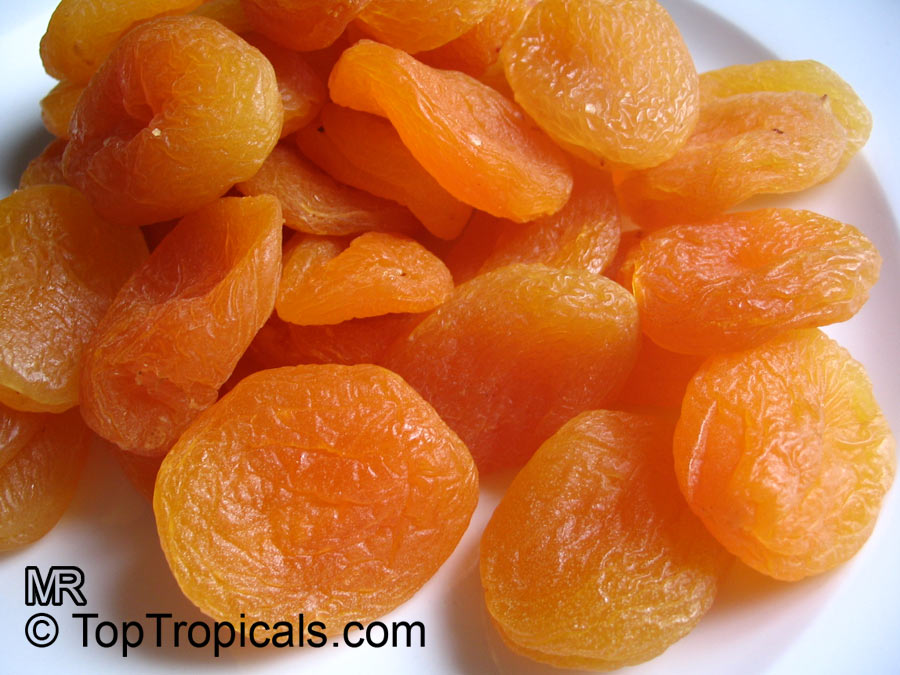Prunus armeniaca (Apricot)
Botanical names: Prunus armeniaca, Amygdalus armeniaca
Common name: Apricot
Family: Rosaceae
Origin: Asia










They are extremely rich in beta-carotene, and are an excellent source of vitamin A, vitamin B, and other nutrients. They also have a low Glycemic Index, which means that dried apricots have a low impact on blood sugar levels. Apricots are very high in antioxidants and are packed with essential dietary fibers, minerals, and vitamins.
Prunus armeniaca, commonly known as Apricot, is a small deciduous tree growing to a height of 10-20 feet. Native to Asia, Apricot has large pink and white or off-white flowers that attract hummingbirds and butterflies. The tree is highly drought tolerant and thrives in full sun with moderate water. It is a cold hardy plant and is suitable for growing in USDA zones 5-9.
Apricot fruits are drupes, similar in size to small peaches, and typically range from yellow to orange in color. They are rich in beta-carotene, vitamin A, vitamin B, and other essential nutrients, making them a nutritious snack or ingredient. They also have a low Glycemic Index and are very high in antioxidants. Apricot trees can be prolific producers, typically yielding between 30 and 50 pounds of fruit per tree annually. The fruit can be consumed fresh or dried, while the apricot kernels can be used in cooking or to make medicinal extracts.
Similar plants: Prunus armeniaca (Apricot)
- Prunus dulcis (Almond)
- Prunus persica (Peach)
- Prunus webbii (Wild Almond tree )
- Prunus avium (Wild Cherry)
- Prunus campanulata (Taiwan Cherry)
- Prunus cerasifera (Cherry Plum)
- Prunus cerasoides (Himalayan flowering cherry)
- Prunus glandulosa (Chinese Bush Cherry)
- Prunus ilicifolia (Hollyleaf Cherry)
- Prunus laurocerasus (Cherry Laurel)




